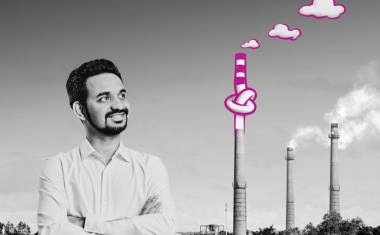Experts Statements: Olivier Simon, Weyl-Chem Lamotte

Despite tremendous challenges facing the pharmaceutical industry, it continues with its commitment to innovation and the discovery of novel drugs to address unmet medical needs. Indeed, medicinal chemists face a challenge of their own. Trying to survive in a changing environment where pharma is focusing on biologics drug candidates will require chemists to adapt.
CHEManager International asked R&D experts of chemical and pharmaceutical companies to elaborate on their research strategy and share their opinion with our readers. In detail, we interviewed professionals ranging from CEOs to heads of R&D and process development about:
_____________________________________________________________________________________
The crucial success factors in chemical and pharmaceutical research.
The role of information technology tools in developing reaction routes and processes.
Challenges and changes affecting the work of R&D chemists in the future.
_________________________________________________________________________
Olivier Simon: The main goal of chemical and process research is to create new pathways: more competitive, cleaner, safer for the users and producers, and respecting the environment. To achieve this goal, the researchers today are strongly supported by extensive access to information, simulation tools and automatized parallel reactors.
“It is very important
to mix young bright researchers …
and experienced people …
to find innovative solutions.”
Olivier Simon,
Head of Technology R&D
and Process Development,
Weyl-Chem Lamotte
Our research focuses on the molecule synthesis or mixture preparation. For this purpose, our R&D teams are trained to develop the best chemical routes and processes. One crucial success factor is the building of a heterogeneous team combining a state-of-the-art knowledge of industrial organic chemistry and a unique know-how gained over the years. Therefore it is very important to mix young bright researchers, trained to the latest technologies, and experienced people, familiar with the existing assets, in order to emulate creativity and to find innovative solutions.
Designing new pathways also means that one is able to test operating parameters out of the standard range: for example, by setting high kinetic rate of reaction using short residence time in continuous reactors like micro reactor systems or microwave heated tubular reactors. Purification of the product or intermediates is not to be overlooked. Nowadays, distillation can be well-simulated when the thermodynamics of the compounds are known. The major problem is that for advanced molecules the thermodynamic is not available or the molecules are too heavy to be distilled. In that case other technologies should be employed. WeylChem develops a number of new ways to provide answers to this challenge. By using continuous liquid-liquid extraction, prototyped in the lab and in mini-plant, or supercritical CO2 extractions, where we are able to tune the solvent properties by playing with the temperature and pressure, we support our customers with innovative options.
For us the future of R&D is a strong integration of organic chemistry and chemical engineering adapting reactors and purification units for the chemistry and not the chemistry to the vessels.






